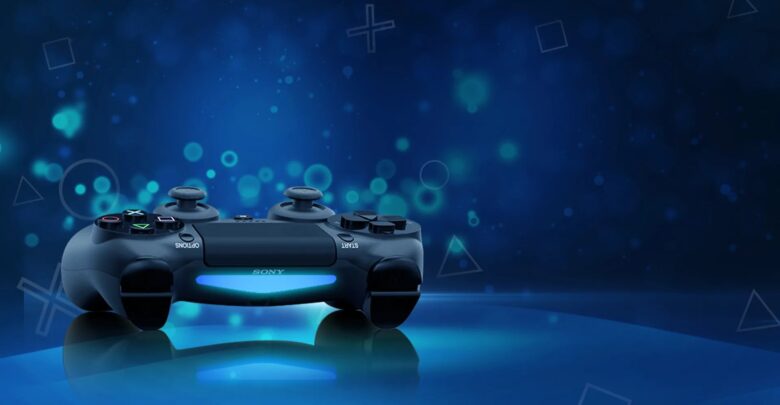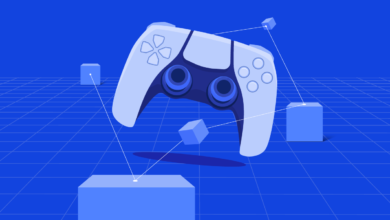Innovation
To Infinity and Beyond: The world of Virtual Gaming, and the IP Conundrum

The Pandemic has halted the exhilarating world of physical sports, that we are all a fan of. However, this has also meant that the e-sports and the online gaming industry has caught up. The pandemic has allowed the gaming industry to thrive and the same has attracted billions of euros of sales and a large number of fans. Despite the world locked and most of us at home, many have taken to online gaming as a way of spending time.
e-Sport means competition between individuals through different genres of computer or video games[i] (e.g., strategy games, first-person shooters, simulations of sports). When the number of spectators and income grows, the number of eSports becomes increasingly essential for all parties: event organizers, advertisers, and even mainstream sports clubs set up their own eSports divisions. The Siege or League of Legends are popular e-Sports games[ii] in which cash awards can hit significant amounts. Intellectual Property Law plays a vital role in e-Sport. The legal issues which may occur in this setting should be understood by e-Sports developers, event organizers, e-Sport teams, and sponsors.
Lockdown and e-Sports
Given the rising demand, internet vendors have struggled to improve their networks. The US telco said recently that gaming traffic on Verizon’s network shot an “unprecedented” 75% within a week[iii]. Even tech companies raced for a record number of customers.
The Wild West adventure publisher “Red Dead Redemption” Rockstar Games has assured gamers to keep its online servers running smoothly after it has told its global employees that they will operate from home. The business has also developed many extra activities to keep housebound players hooked to their controllers. Virtual gaming groups will “go some way to build a missing public space” in the aftermath of the pandemic, said Christian McCrea[iv], a professor of media studies at the RMIT University in Australia. Pokemon Go, a popular mobile game in 2016 when it reached millions of people to the streets for a virtual monster chase, was updated by its maker this month to make it easier for users to play at home.
The IP aspect of the Videogame Industry
Intellectual Property is a critical component of the videogame industry: developer’s contracts, contracts of jobs (IP ownership), distribution, advertising, and almost all licenses in this region. IP aims to deter pirates and rivals who intend to pick up the game work and use it without permission and compensation. Therefore, developing a proactive IP strategy is vital for a developer company’s success, a challenging task in a fast-growing sector, and even more, complicated when faced with a lack of harmonization. The laws of each nation thus define the intellectual property rights available for the product or service in its market and conceptualize them. Patents, trademarks, product designs, and, ultimately, copyright are the most applicable rights in the gaming industry.
e-Sports are rapidly gaining ground in India, but the regulatory system is outdated in this regard. The Sports (Online Gaming and Prevention of Fraud) Bill[v] was introduced as a Private Member Bill in the Lok Sabha in January 2019. The legislation has been enacted to establish a regulatory structure to ensure that the business works in the sector without illegal practice. The introduction of this Bill was especially crucial in India without a national e-Sports rule.
Video games in India are not marked as IP in a specific category. “Cinematographic work,” as defined in Section 2 of the Copyright Act 1957 (Copyright Act), states:
“any work of visual recording on any medium produced through a process from which a moving image may be produced by any means and includes a sound recording accompanying such visual recording, and ‘cinematograph’ shall be construed as including any work produced by any process analogous to cinematography including video films.”
According to the above definition, the reference to any “process similar to cinematography” is broad enough to include video games in its scope. Computer programs may be protected as a literary work in compliance with the Copyright Act. Therefore, the video games’ source code can be covered under the law as well.
Derivative protection of video games refers to the legal security of eSport’s intellectual property in the nation. Trade mark law, for instance, seeks to protect the name, the emblem, the slogan as well as the character’s distinct identity. Copyright law is usually applied to protect the source code, background music, and other game content. Patent law works effectively to safeguard gaming devices such as joysticks or all other technological processes that help to make games possible. Commercial secrets exist if the developers don’t want to share their game’s source code.
Video games are, in general, protected under copyright (as source code) and their components (character, music, landscape, etc.). This will require permission from the right holder to permanently or temporarily recreate a computer or video game. As end-users (Gamers) are usually excluded from the commercial use of computer and video games[vi], license agreements commonly used by publishing companies on the market must ensure that the organizers of eSports events obtain the necessary usage rights to publish their respective video games on their events and via other distribution channels such as online streaming.
COPYRIGHT
To be protected against copyright, works of art protected must include literary, musical, and original materials fixed on a material medium of expression and pictorial, graphic, and architectural works in a category of objects listed in the Copyright Act. When work is licensed, copyright holders are entitled exclusively to reproduce, create derivative works, distribute copies, view the works publicly, and allow others to use their works under certain conditions.
They are the critical exception to registration criteria, as they are without the need to apply to register. Nonetheless, the registration is strongly recommended, as it is used in case of a copyright dispute as evidence of authority, and because the work occurred on a given date.
The idea that such rights can exist without registration is one of the copyright system’s main characteristics[vii]. The existence of these rights depends solely on the reality and merit of the production of the work. Nevertheless, registering is incredibly useful as it enables the copyright owner to prove that work existed not only on that date but still belongs to that author. For the creator of a video game, the majority of games are ordered by a corporation, produced or supplied by its employees. In this context, copyright rights can depend on the contracts applicable and the national law applicable to every case. The company that ordered this work in most cases has these rights, but actual intellectual authors can enjoy certain rights, depending on the authority’s competence. During the final work, such writer’s rights may simply be referred to allow the public to delete the work, thereby compensating the copyright owner.
TRADE MARK
Any sign which could be graphically depicted, which could differentiate the goods and services of one business from another, is registrable if:
• It is not descriptive or non-distinctive in respect of the goods and services in question.
• It has not been opposed by the owner of an earlier similar sign. A distinctive game name will make a game memorable and stand out from others.
The legal protection of the label used to distinguish products and or services in the company is a trade mark. As such, the owner of a trade mark has the sole right to use a sign to differentiate products and services. This symbol can only be made up of a word element, a symbolic element, or both. Therefore, with the awareness that no other person can copy or use such a trademark, the owner of a duly registered trade mark can encourage this with its consumers. Finally, a trade mark can be extended every ten years, for ten years after its registration.
A company is usually associated with many trade marks in the gaming industry. It can be identified by the producer’s and distributors’ trade marks and by a trade mark of the game itself. The characters can also be secured by separate registration of the marks in the video game. In this way, businesses in this industry should not only encourage customers to assess the corporate roots of the product but also prohibit rivals from entering into similar game marks, known by a similar name, picture, or character, which should, and are not, widely registered for their game.
DESIGN
The industrial designs preserve the look of a particular product. Such rights do not offer cover for any technological feature, but rather for external functions such as curves, contours, colors, shape, texture, materials, and adornment. The design holder has the sole right, irrespective of product type, to use a product with a specific appearance.
Nevertheless, there are examples of registered game designs, notably photographs, which are likely to remain on-screen throughout the game.
Therefore, the right holder of a given game will protect not only the graphics of the game characters and other in-game models such as buildings or maps but also the cover of videogames or its Graphical Interface concerning the application of industrial principles in the game industries. With the existence of the subject matter protected by the design registration, these registrations make it impossible for any other individual to benefit without permission from any product.
Characters that appear in games should be taken into consideration. Many country’s legal structures are focused on favoring holders of rights. A lot of litigation has taken place in the USA because of unauthorized use of the images and similarities of celebrities, for example:
• The lawsuits for their use of their pictures in the game Band Hero filed in California ‘No Doubt’ (band)[viii].
• ‘Lindsay Lohan’ had brought charges against ‘Grand Theft Auto V’ developers to use its resemblance to ‘Lacey Jonas’ character[ix]. Lacey Jonas seems to be closely resembling Lindsay Lohan on the front cover. In the game that hides paparazzi, Lacey Jonas, among other items, plays a minor role. The charges were opened in New York.
• In the Call of Duty: Black Ops 2, Manuel Noriega (former Panamanian dictator) sued Activision[x] for using his image and resemblance. It was claimed that the game depicted a variety of fictional crimes against Manuel Noriega. The charges were filed in Los Angeles.
PATENT
This kind of intellectual right protects inventions from their technological features, which means that the inventor is solely entitled, in Indian law, to pursue a product or method up to 20 years commercially[xi]. This ensures that no other company can implement any product or process with technological features identical to the product or process protected by the patent law. Applications, video games are subject to patentability. Nevertheless, an invention and its technological subject-matter relating to video games can still be protected by patents because this matter is a technical solution to a technical problem.
As far as this form of intellectual property is concerned, it is likely, on the bottom of its interface in a football simulator match, the EU Patent No. EP0844580 belongs to KONAMI CO., LTD[xii]., which covers a mini-picture device. The owner of the patent secured a program that measures the time of the system and, through variable probabilities, disperses individual animals at a particular time so that various creatures may be brought into the same field over the whole day in the same region. Another example of a patent in the European history of video games is the European patent EP1078664, possession of NINTENDO CO., LTD[xiii].
The Legal Issues in the Industry
One problem is that IP owners have to locate the violator when trying to enforce their real IP rights in agreements. As Virtual Reality (VR) users log in from around the world, it is difficult to identify and track users that infringe. Where copying is performed, courts generally decide whether the allegedly infringing work is “based on” the original work or “substantially similar to.” Generally speaking, third parties may use the ideas included in the game, provided that the expressions of these ideas, for example, the software game code underlying the game, or the creative elements that compose the copyrights’ “look and feeling,” are not copied from the original work. This will continue as VR is integrated into the gaming industry, making it a more dynamic gaming experience.
The game maker is undoubtedly the proprietor of the game material, however, as VR allows users to interact with information in various ways, direct control of the grievous legal fields surrounding the virtual world can be lost. The question is: where does the developer have the right to the software that provides the content end, and where does the VR provider have the right to software that enables the user’s experience?
In this world of virtual gaming, the legal dangers will mainly lie in the lack of clarity about intellectual property rights when content and technology combine to produce something new and precious. Innovators working with these emerging VR technologies will have to negotiate the rights of ownership of the valuable intellectual property that this collaboration will generate in the future.
Considering these legal implications ahead of time can pave the way for a happy marriage between the soon-to-be billion-dollar gaming industry and VR. According to Business Insider[xiv], VR headsets alone will grow to a $2.8 billion industry in 2020. Goldman Sachs predicts revenue from all categories of VR, including software, will reach $110 billion by 2020.
Conclusion
Together VR and esports could be a tremendously effective collaboration. The VR introduction has already gained considerable publicity in games such as Dota 2[xv]. VR technology transforms the sports industry because people are no longer separated from each other by screens but instead play in the virtual room. Reality and computer-generated content are integrated so tightly that users are not able to tell each other.
eSport tournaments requiring entry fees are considered to be gambling platforms and, in certain countries, are limited or prohibited. Nevertheless, in many States, sports are known as a ‘skill game’ and are excluded from the rules of the play.
One of the many examples of VR-AR breaches is the settled conflict between Facebook and game developer ZeniMax, for which Facebook charges USD 500 million in penalties to ‘grab the source code.’[xvi] Although protecting trade secrets is just a part of the issue, the effect it can have on customers is significant to take into consideration. Two developers of the FIFA VR game known as FUT Galaxy were accused last year of illicit betting[xvii]. An English VR player in 2013 was found by breaking into other players’ accounts for stealing virtual property that supposedly had immense value in a virtual game called ‘RuneScape.’[xviii] Such situations are more interesting as there are no rules controlling behavior relevant to in-game virtual reality, leaving users without any recourse.
The question of privacy, which is very important in the fight against virtual infringements, has an immense weight. At present, data security requirements extend similarly to VR/AR hardware, software, and service providers in almost all Asian countries to ensure they continue to comply with these laws. Nevertheless, many VR gaming companies store and process substantial amounts of their user’s personal data in support of their marketing and business models. For example, the consumer may use the amount of reaction time as health data and sell it to interested parties. The users may also exchange details about their location, age, sex, interests, etc., which can be used to identify them in real life. Sadly, today’s data security law is not sufficiently mature to solve these issues.
There is no question that laws will always foresee and not precede creativity. VR/AR poses several obstacles to current ideologies and strategies that must be carefully addressed to respond to changing times. The virtual/increased reality’s immersive existence can pose extraordinary challenges and call into question basic standards of freedom and injury in the actual and the virtual world. Therefore, we must be prepared to deal with them.
This article can be cited as:
Utkarsh Gupta, To Infinity and Beyond: The world of Virtual Gaming, and the IP Conundrum, Metacept- InfoTech and IPR, accessible at https://metacept.com/to-infinity-and-beyond:-the-world-of-virtual-gaming,-and-the-ip-conundrum.
References
[i] Hamari, J., & Sjöblom, M. (2017). What is eSports and why do people watch it? Internet research, 27(2). DOI: 10.1108/IntR-04-2016-0085, Forthcoming.
[ii] Seck, Tobias. Q2 2020’s Most Impactful PC Games: Riot Games Seizes Esports World Domination, Continuing COVID-19 Impact. The Esports Observer, 22 July 2020, https://esportsobserver.com/q2-2020-impact-index/. Accessed 8 July 2020
[iii] Europost. Online gaming booms as virus lockdowns keep millions at home. Europost, 26 March 2020, https://europost.eu/en/a/view/online-gaming-booms-as-virus-lockdowns-keep-millions-at-home-27714. Accessed 8 July 2020.
[iv] AFP. Online gaming booms as virus lockdowns millions. The Phnom Penh Post, 26 March 2020, https://www.phnompenhpost.com/lifestyle/online-gaming-booms-virus-lockdowns-millions. Accessed 8 July 2020.
[v] Khatri, Bhumika. Shashi Tharoor Introduces Bill To Regulate Online Gaming. Inc42, 15 January 2019, https://inc42.com/buzz/shashi-tharoor-introduces-bill-to-regulate-online-gaming/. Accessed 8 July 2020.
[vi] von der Heiden, Juliane M., et al. The Association Between Video Gaming and Psychological Functioning. Frontiers, 26 July 2019, https://www.frontiersin.org/articles/10.3389/fpsyg.2019.01731/full. Accessed 8 July 2020.
[vii] Fries, Janner, and Jennifer T. Criss. Debunking Copyright Myths. AmericanBarAssociation, 05 August 2019, https://www.americanbar.org/groups/intellectual_property_law/publications/landslide/2018-19/july-august/debunking-copyright-myths/. Accessed 8 July 2020.
[viii] Thomas, Andrew. No Doubt v. Activision Publishing, Inc. Patent Arcade, 18 February 2019, http://patentarcade.com/2019/02/no-doubt-v-activision-publishing-inc.html#page=1. Accessed 7 July 2020.
[ix] Statt, Nick. Lindsay Lohan’s GTA V lawsuit has been tossed out because the game is satire. The Verge, 2 September 2016, https://www.theverge.com/2016/9/2/12777204/lindsay-lohan-grand-theft-auto-5-lawsuit-thrown-out. Accessed 9 July 2020.
[x] Stuart, Keith. Manuel Noriega sues Activision over Call of Duty video game character. The Guardian, 16 July 2014, https://www.theguardian.com/technology/2014/jul/16/manuel-noriega-sues-activision-over-character-in-call-of-duty-video-game. Accessed 09 July 2020.
[xi] Intepat Team. India: Patent Renewal Process In India. Mondaq, 19 June 2017, https://www.mondaq.com/india/patent/603310/patent-renewal-process-in-india. Accessed 06 July 2020.
[xii] https://patentimages.storage.googleapis.com/d3/4a/16/ba66270ebd5ade/EP0844580A3.pdf
[xiii] https://patentimages.storage.googleapis.com/71/19/a4/e721be3820f622/EP1078664B1.pdf
[xiv] Howard, Brianna. Protecting intellectual property rights in the billion-dollar world of virtual gaming. Tech Crunch, 24 January 2018, https://techcrunch.com/2018/01/23/protecting-intellectual-property-rights-in-the-billion-dollar-world-of-virtual-gaming/, Accessed 09 July 2020.
[xv] Kovach, Nadia. Think Mobiles. Virtual Reality in Gaming, 2018, https://thinkmobiles.com/blog/virtual-reality-gaming/. Accessed 08 July 2020.
[xvi] Feldman, Brian. Why It Doesn’t Matter That Facebook Lost a $500 Million Lawsuit. Intelligencer – New York Magazine, 02 February 2017, https://nymag.com/intelligencer/2017/02/oculus-owes-zenimax-usd500-million.html. Accessed 08 July 2020.
[xvii] Gambling Commission. Gambling Commission. Two men convicted after offering illegal gambling parasitic upon popular FIFA computer game, 07 February 2017, https://www.gamblingcommission.gov.uk/news-action-and-statistics/News/two-men-convicted-after-offering-illegal-gambling-parasitic-upon-popular-fifa-computer-game. Accessed 09 July 2020.
[xviii] Admin, tVPN. RuneScape Theft – Dutch Supreme Court Decision. The Virtual Policy Network, 01 February 2012, http://www.virtualpolicy.net/runescape-theft-dutch-supreme-court-decision.html. Accessed 08 July 2020.





